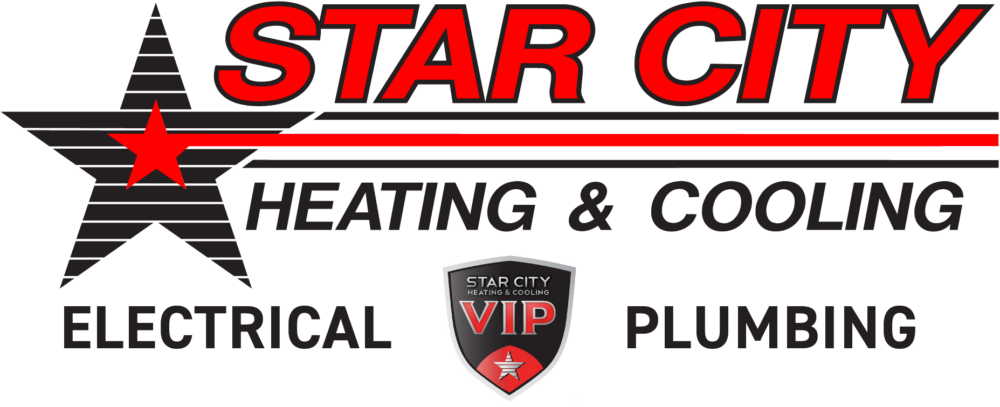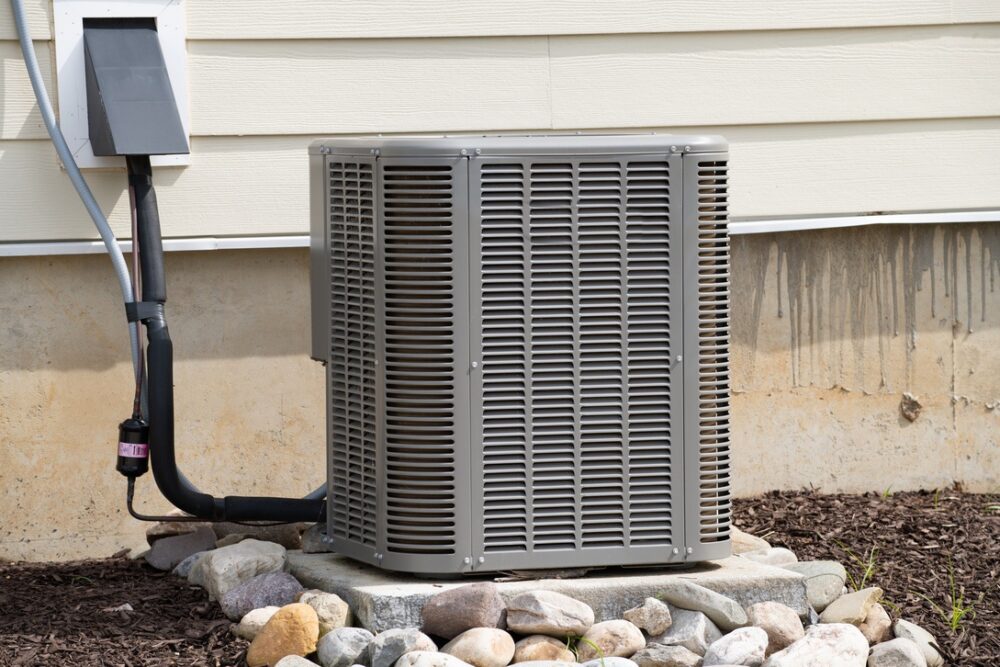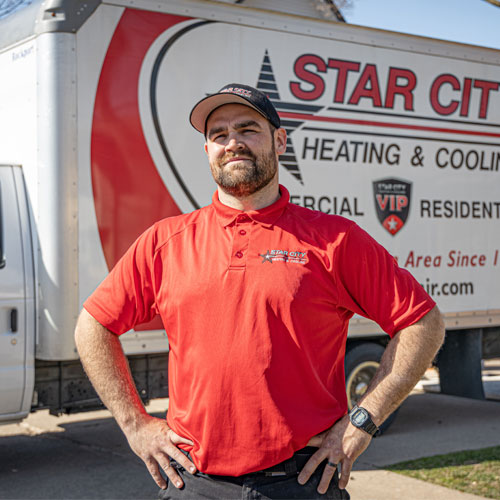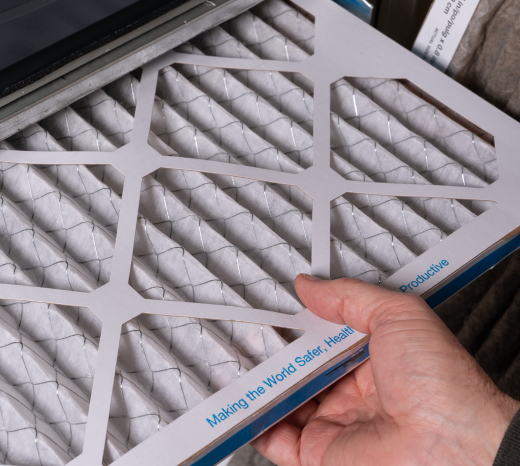Advice For Homeowners, Heating
Star City Heating and Cooling has provided leading residential and commercial HVAC services throughout Lincoln, NE and the surrounding communities for more than four decades. Let us walk you through the benefits of having a heat pump in this area so you can make the best decision for your home.

Nebraska’s cold winters and hot summers make climate control a priority for homeowners—and heat pumps can offer an energy efficient solution. In this article, our home comfort experts at Star City outline the pros and cons of using heat pumps, and give you a deep dive into all the information you need to make an informed decision for your home.
Next Steps:
Table of Contents
- What is a Heat Pump?
- Air-Source vs. Ground Source Heat Pumps
- Environmental Benefits
- Advantages for Heating & Cooling
- Comparison Chart: Heat Pumps vs. Traditional Furnaces
- Upfront Costs & Long-Term Savings
- Maintenance Requirements
- Health Benefits
- Choosing the Right Heat Pump for Your Home
- Considerations for Heat Pump Owners
- Homeowner Resources
- FAQ
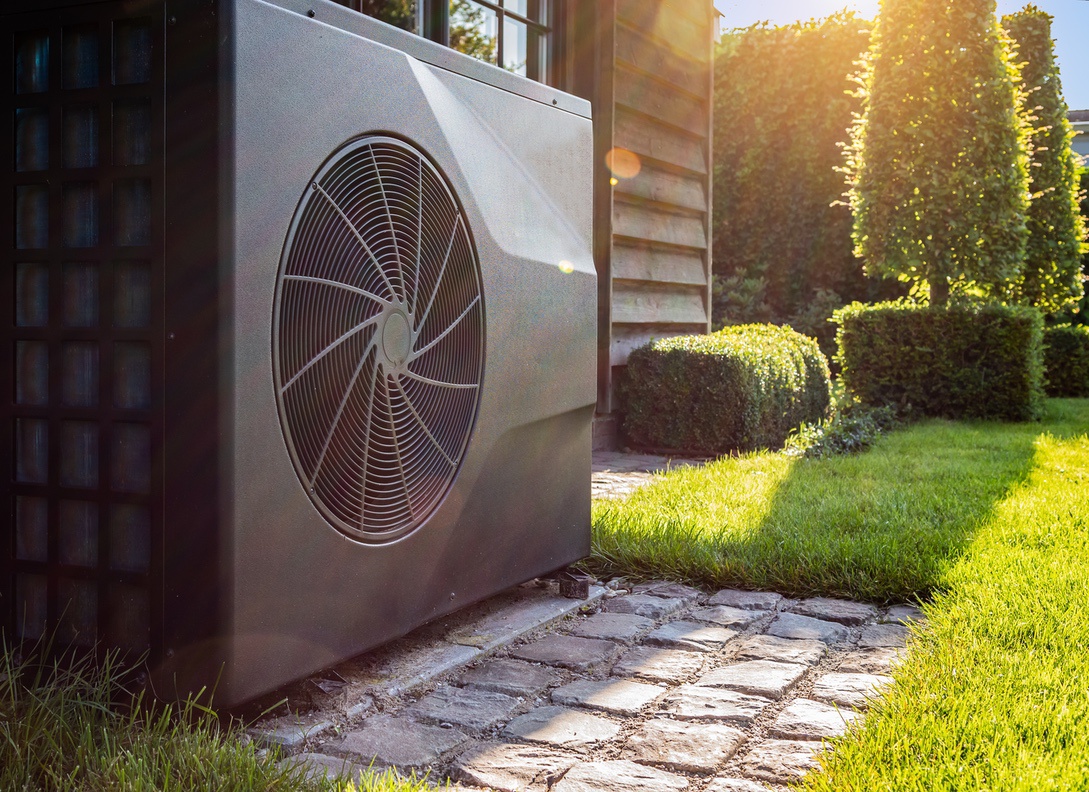
What is a Heat Pump?
A heat pump is an HVAC system that efficiently provides both heating and cooling for homes. Most residential heat pumps use electricity to transfer heat from one location to another.
A heat pump absorbs heat from the air or ground outside and transfers it into the home to provide warmth in cold conditions. In warmer weather, the process is reversed, and the heat pump removes heat from the home to provide cooling.
Air-Source vs. Ground-Source Heat Pumps
Most heat pumps transfer heat from either the air outside your home or the ground underneath. Here’s a quick overview of the pros and cons of each type.
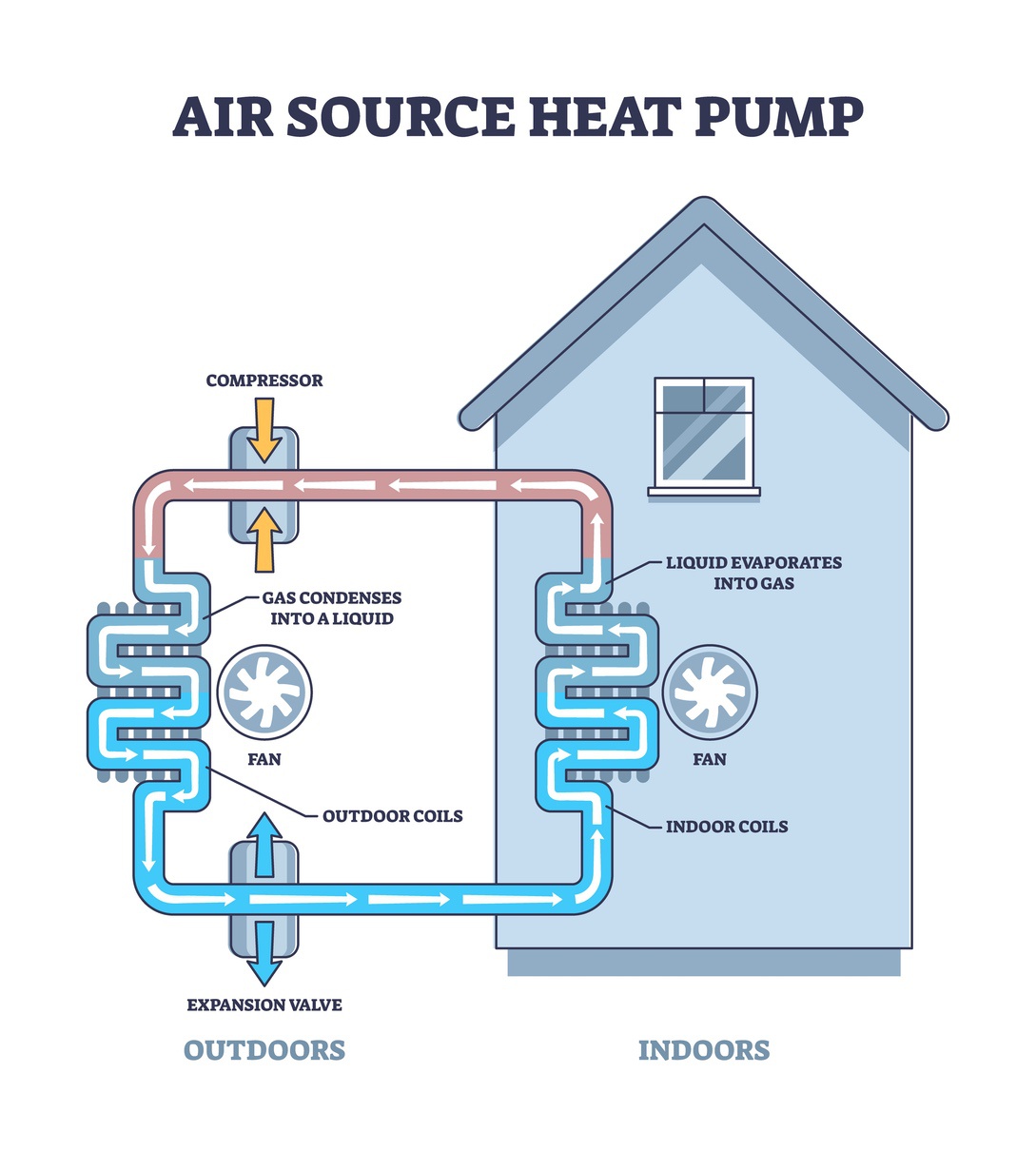
Air-Source Heat Pumps
These pumps transfer heat between the inside of a building and the outside air, absorbing heat from the outside air to heat the building in winter and reversing the process to cool the building in summer.
Pros:
- Cost-Effective Installation: Generally cheaper and easier to install compared to ground-source pumps.
- Energy Efficiency: Offer significant energy savings over traditional heating methods like furnaces and electric heaters.
- Versatility: Can provide both heating and cooling, making them suitable for a variety of climates.
Cons:
- Lower Efficiency in Extreme Temperatures: Their efficiency can decrease in extremely cold climates, as they rely on outside air.
- Noise: Tend to be noisier than ground-source pumps.
- Space Requirements: Require external space for the heat exchanger unit.
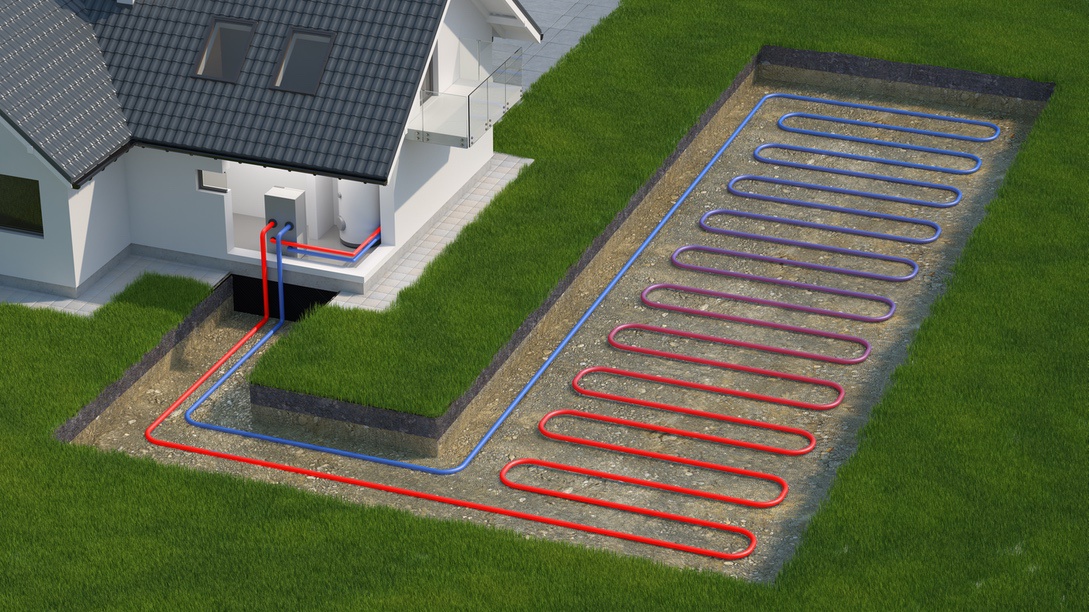
Ground-Source Heat Pumps
Also known as geothermal heat pumps, these models exchange heat with the ground instead of the air outside the home.
Pros:
- High Efficiency: More efficient than air-source pumps, especially in extreme temperatures, due to stable ground temperatures.
- Longevity and Reliability: Typically have a longer lifespan and require less maintenance than air-source pumps.
- Less Space on Ground Level: All major components are buried, saving space above ground.
Cons:
- Higher Initial Cost: Installation is typically more expensive due to the need for ground excavation or drilling.
- Site Requirements: Installation is dependent on having sufficient land and appropriate soil conditions.
- Longer Installation Time: The installation process is more complex and time-consuming.
Environmental Benefits
Using a heat pump offers several environmental benefits and can significantly reduce your carbon footprint. Here’s how:
- Energy Efficiency: Heat pumps are highly energy-efficient and their use leads to lower energy usage overall.
- Reduced Greenhouse Gas Emissions: Rather than burning fossil fuels, heat pumps transfer existing heat to warm homes, resulting in lower gas emissions.
- Versatility and Dual Functionality: Heat pumps can heat and cool your home—which streamlines energy use by eliminating the need for separate cooling and heating systems.
- Incentives and Rebates: In Nebraska, you’re able to qualify for the federal tax credit that will cover up to 30% or $2,000 of the heat pump cost and installation.
Advantages for Heating and Cooling
A heat pump offers dual benefits for both heating and cooling, making it a versatile solution for year-round comfort in Nebraska’s climate. Here are some more advantages that using a heat pump can offer:
- Versatility: Nebraska can see both severe winters and summers. Heat pumps can utilize this climate to its advantage by extracting warmth in the winter and expelling it in the summer.
- Cost Savings: Potential for lower operational costs compared to traditional heating and cooling systems.
- Consistent Comfort: Maintains a consistent, comfortable indoor temperature all throughout the year.
- Health Benefits: Improvement of indoor air quality will occur from a heat pump’s continuous circulation and filtering of air.
Comparison Chart: Heat Pumps vs. Traditional Furnaces
Here’s how heat pumps compare to traditional central furnaces. We’ll go into more detail below, but this chart provides an overview:
| Upfront Costs | Installation Requirements | Long-Term Savings | Maintenance & Life-Span | Climate Considerations | |
| Heat Pump | Higher Initial Costs than traditional HVAC.
Apprx: $5,500 to $10,000. |
Land/Soil Considerations for Ground-Source options. | Potential energy savings over time and potential incentives/rebates offered. | Typically lower maintenance; longer life span. | Best in moderate climates. |
| Full Furnace | Similar Initial Costs to Heat Pump (still need a traditional AC unit if you want cooling).
Apprx: $4,500 to $9,000. |
Straightforward: Gas line or electrical connection needed. | Influenced by fuel costs and trends. | Moderate to high maintenance required; life-span affected by fuel type. | Suitable for various climates, particularly in colder areas. |
Upfront Costs & Long-Term Savings
Upfront Costs
With Star City, heat pump installation starts at just $99 per month. There are also plenty of financial incentives for buying energy-efficient heat pumps, including tax breaks and rebates. Our team can tell you more about how to qualify for these, and provide you with an accurate quote based on your specific needs.
Long-Term Savings
Using a heat pump can lower your utility bills and provide long term savings. And, if something happens to your heat pump within the first year after our installation, we repair it for free!
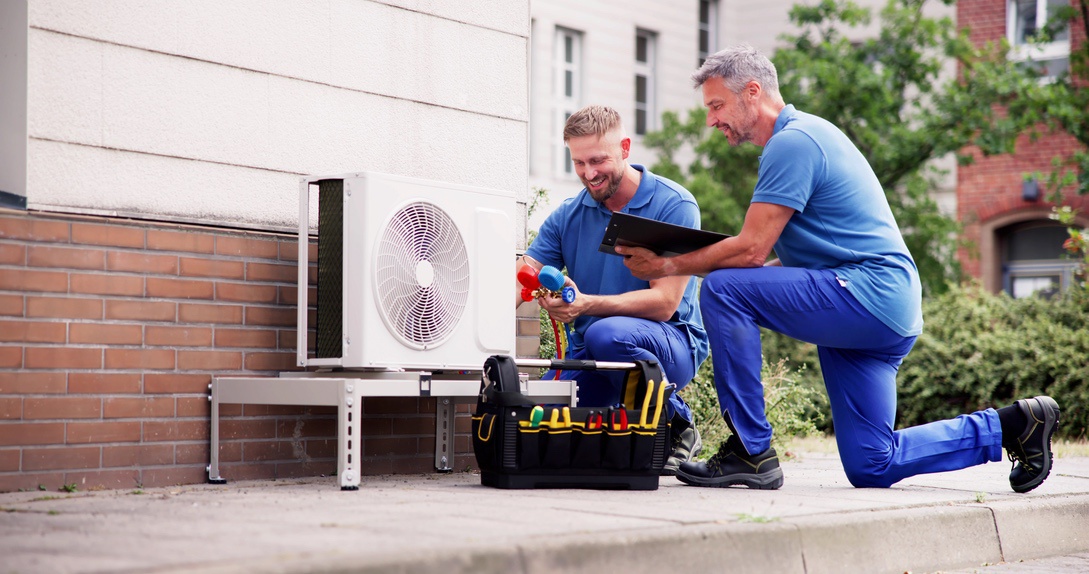
Maintenance Requirements
Regular maintenance is required to ensure long-life of every heat pump and keep its efficiency as high as possible. Book an annual heating tune-up with Star City to point out areas of concern and prevent breakdowns or larger issues from occurring (we do this for heat pumps as well as central furnaces).
Being proactive with proper maintenance will serve you in the long run by saving on repair costs and enhancing your heat pump’s reliability. For a list of maintenance tasks you can do yourself, see the FAQ at the end of this article.
Health Benefits
Modern heat pumps come with filters that capture dust, allergens, and pollutants, which enhances your indoor air quality. This can contribute to immediate health benefits such as reduced respiratory issues and fewer allergy or asthma symptoms.
Choosing the Right Heat Pump for Your Home
Several factors should be considered when choosing a heat pump for your home, including:
- Size and layout of the home: The square footage of your home, the number of floors, ceiling height, occupancy levels, and other factors all determine how much heating and cooling capacity you’ll need. Our team will calculate this before recommending a model for your home.
- Geo-thermal considerations: Consider factors such as soil conditions and rock when deciding between an air-source or ground-source heat pump. For example, according to the Department of Energy, soil with good heat transfer properties requires less piping to gather a certain amount of heat than soil with poor heat transfer properties.
- Local building codes: Star City will ensure compliance with Nebraska building codes to meet safety and installation requirements. This includes its foundation being at least three inches above ground when installed.
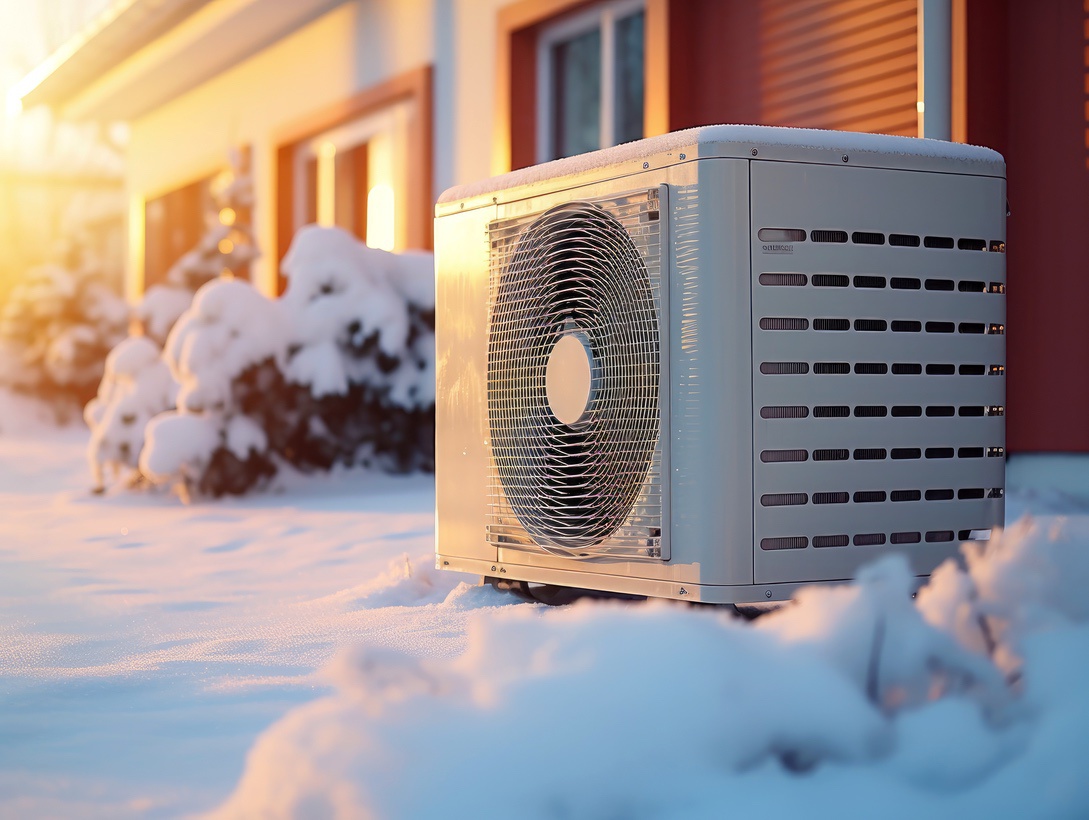
Considerations for Heat Pump Owners
Although there are plenty of advantages to installing a heat pump, it’s important to note the potential challenges in order to make the right decision for your home. These include:
- Initial cost: Heat pumps tend to have higher upfront costs than traditional furnaces or air conditioners (although they’re frequently cheaper than the costs of both put together).
- Extreme cold: Performance of air-source heat pumps during extreme cold may be less efficient. Consider using your heat pump during chilly days and relying on a high-efficiency furnace for the coldest days during Nebraska’s extreme winters, when heat pumps will be less efficient.
- Dependence on electricity: Heat pumps rely on electricity, so if your power goes out, so does the heat pump—although this is also true of electrical furnaces and ACs.
- Complex Installation: If you choose to go with a ground-source heat pump, installation can be tricky. These need extensive installation and will add to the upfront costs.
Heat Pump Best Practices
Fortunately, there are ways to minimize these challenges through professional installation and maintenance:
- Professional Installation: Have Star City install your heat pump to ensure quality workmanship, correct sizing, proper placement, and optimal functionality.
- Routine maintenance:
- Schedule annual HVAC inspections to prevent breakdowns from happening and illuminate any potential issues.
- Clean and change out air filters regularly to provide longevity and quality performance.
- Proper home insulation: Ensure your home is properly insulated to reduce the heat pump’s workload and expand its life.
- Backup power sources: Use a generator to address electricity dependence during power outages.
Homeowner Resources
Nebraska homeowners have access to a variety of resources to help make informed decisions about installing and using a heating pump, including:
- Energy Efficiency Guides: The Nebraska Energy Office provides energy efficiency guides, including the Nebraska Energy Quarterly, and resources to help homeowners understand the benefits and considerations of heat pump installations. These newsletters often include information on available incentives and energy-saving tips.
- Local Utility Programs: Nebraska utility companies often offer information on energy-efficient technologies and may provide resources or incentives for homeowners considering heat pump installations. Check with your local utility for specific programs. The Lincoln Electric System has information on the Sustainable Energy Program as well as their own EM POWERED and EnergyLine newsletters which offer a lot of tips and sustainability information.
- HVAC Professionals: Utilize our team at Star City to help you make the best decision for your home. Consulting with us is essential when you’re in need of personalized advice for your land and home in Nebraska.
- Online Communities and Forums: Participating in online communities and forums, such as local or national HVAC discussion platforms, allows homeowners to learn from the experiences of others. These platforms can provide insights into specific challenges and solutions related to heat pump installations.
Choosing A Heat Pump in Nebraska
Heat pumps have many benefits for Nebraskans—but to truly know if you’re ready to make the move, contact Star City for professional recommendations and accurate quotes on what your installation will cost. Our team can ensure proper installation as well as annual check-ups to ensure quality efficiency and functionality for years to come.
Frequently Asked Questions about Heat Pumps in Nebraska
What heat pump maintenance should I do myself?
In addition to scheduling annual professional service, heat pump owners can:
- Clean or replace air filters every 1-3 months to ensure efficient airflow and reduce strain on the system.
- Check the evaporator and condenser coils annually for dirt and debris buildup; clean as necessary.
- Regularly test the thermostat to ensure it is working correctly and keeping your home at the desired temperature.
- Ensure all ducts and vents are clear of obstructions and check for any air leaks.
- Keep the area around the outdoor unit clear of leaves, pollen, and grass to maintain proper airflow.
- Be alert to any unusual sounds or smells from the unit, as these can indicate a problem.
Should I replace my furnace with a heat pump or keep both?
That’s up to you—but many homeowners opt to keep a high-efficiency natural gas furnace when installing air-source heat pumps. The heat pump can provide efficient heating and cooling throughout the milder portions of the year, while the furnace will be more efficient during Nebraska’s coldest periods.
What factors affect the cost of a new heat pump?
Total costs for new heat pumps vary depending on the type of heat pump you buy, its heating and cooling capacity, and your home’s installation requirements.
How do energy efficiency ratings work for heat pumps?
Air-Source Heat Pumps use Seasonal Energy Efficiency Ratio (SEER) ratings to measure cooling and a Heating Seasonal Performance Factor (HSPF) to measure heating. Most have a SEER range of 14-22 and an HSPF of 8-12.
Ground-Source Heat Pumps use EER (Energy Efficiency Ratio) to measure their cooling efficiency and Ground Coefficient of Performance (COP) ratings for heat. Most have an EER range of 15-30 and a COP rating of 3.5-5.5.
